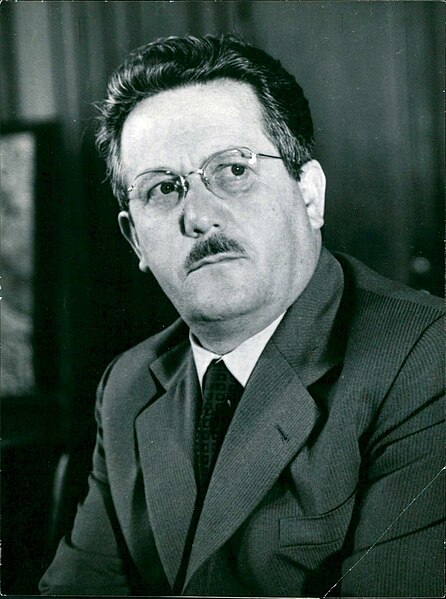Edvard Kardelj, also known by the pseudonyms Bevc, Sperans, and Krištof, was a Yugoslav politician and economist. He was one of the leading members of the Communist Party of Slovenia before World War II. During the war, Kardelj was one of the leaders of the Liberation Front of the Slovenian People and a Slovene Partisan. After the war, he was a federal political leader in the Socialist Federal Republic of Yugoslavia. He led the Yugoslav delegation in peace talks with Italy over the border dispute in the Julian March.
Kardelj in 1959
Liberation Front of the Slovene Nation
The Liberation Front of the Slovene Nation, or simply Liberation Front, originally called the Anti-Imperialist Front, was a Slovene anti-fascist political party. The Anti-Imperialist Front had ideological ties to the Soviet Union in its fight against the imperialistic tendencies of the United States and the United Kingdom, and it was led by the Communist Party of Slovenia. In May 1941, weeks into the German occupation of Yugoslavia, in the first wartime issue of the illegal newspaper Slovenski poročevalec, members of the organization criticized the German regime and described Germans as imperialists. They started raising money for a liberation fund via the second issue of the newspaper published on 8 June 1941. When Germany attacked the Soviet Union, the Anti-Imperialist Front was formally renamed and became the main anti-fascist Slovene civil resistance and political organization under the guidance and control of the Slovene communists. It was active in the Slovene Lands during World War II. Its military arm was the Slovene Partisans. The organisation was established in the Province of Ljubljana on 26 April 1941 in the house of the literary critic Josip Vidmar. Its leaders were Boris Kidrič and Edvard Kardelj.

Slovene Partisans in winter 1942.


